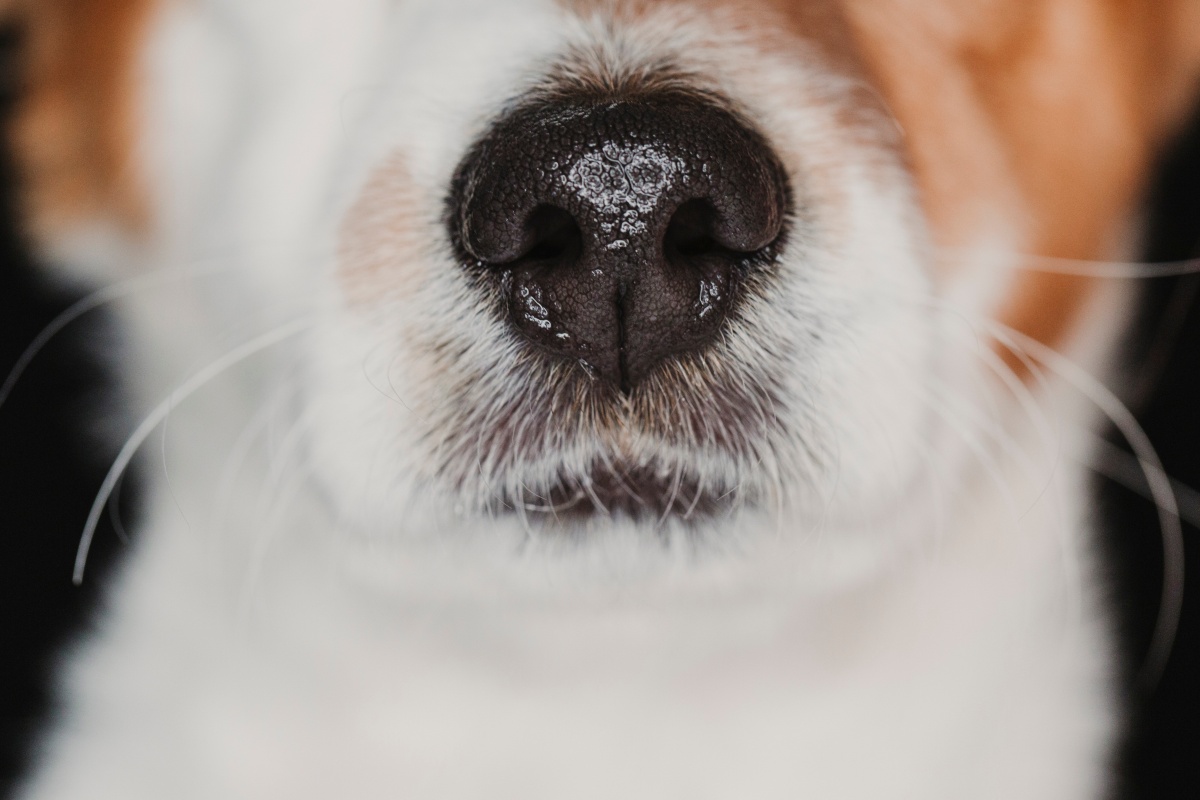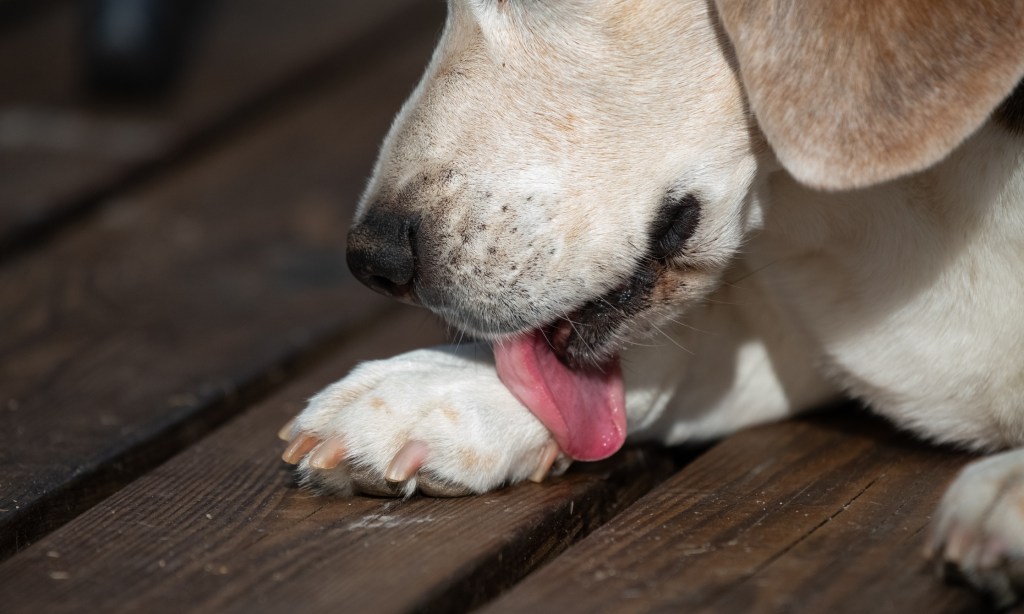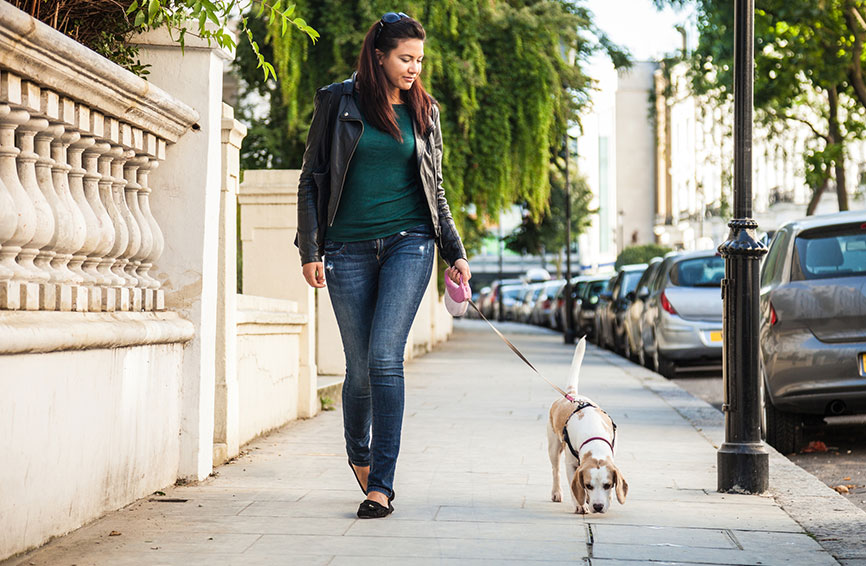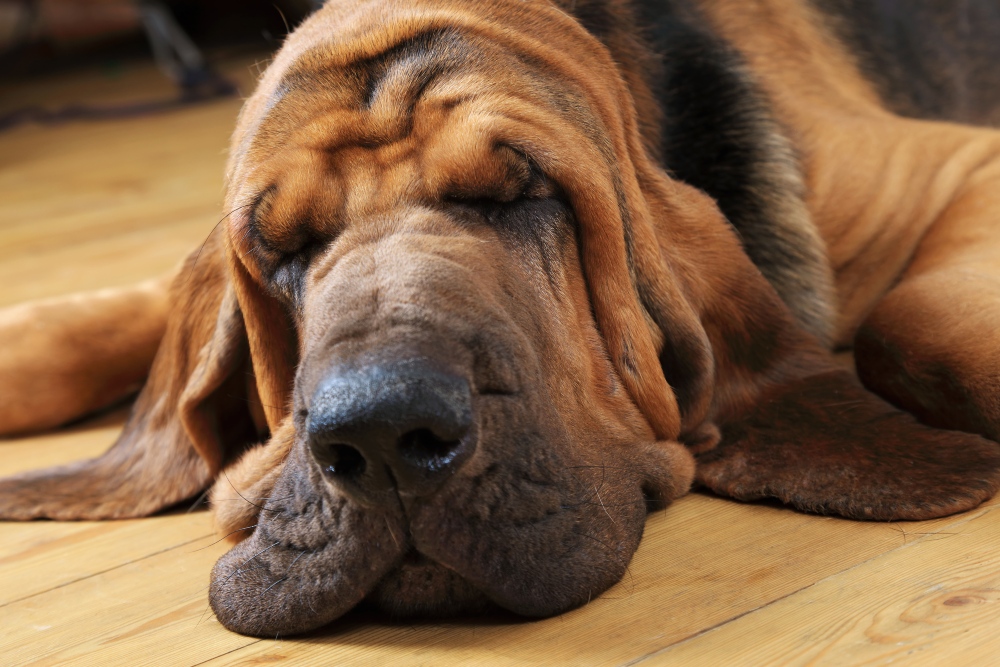Table of Contents
Dogs may experience a runny nose from time to time for a variety of reasons, some more serious than others. For example, when dogs have been outside in warm weather, they may release heat by sweating from their noses. This is a means to cool them down. However, more serious conditions, such as cancer, can also result in abnormal nose discharge in dogs.
If a runny nose only happens occasionally, it may not be cause for concern. However, dogs who experience long-lasting or recurrent runny noses likely have an underlying cause that needs to be addressed by a veterinarian.
It is important to bring your dog to the veterinarian if you notice a runny nose so that an accurate diagnosis can be made. This way, a suitable treatment plan can be determined.
Common Causes of Runny Noses in Dogs
There are many potential reasons for a dog to develop a runny nose, which may include the following:
- Upper respiratory infections, such as kennel cough
- Environmental allergies, such as dust or pollen
- Foreign object in nose, such as a blade of grass
- Exposure to irritant or household chemical
- Dental disease
- Warm weather
- Nasal tumor
- Nasal mites
- Rhinitis (nasal inflammation)
Symptoms That May Accompany Runny Noses in Dogs
Runny noses typically cause a thin, clear discharge, but sometimes the discharge can be yellow to green and thick if there is an infection.
Generally, a runny nose is not the only symptom dogs experience if they have an underlying issue. Additional symptoms associated with runny noses vary greatly depending on what is affecting the dog, but may include:
- Sneezing
- Coughing
- Itchy skin
- Skin rash
- Eye discharge
- Difficulty or noisy breathing
- Lethargy
- Decreased appetite
- Drooling
- Foul breath
- Facial swelling
- Panting
- Sweating from paw pads
- Bleeding from nose
- Fever
Not all dogs who have a runny nose will experience all of these symptoms. For example, a dog with an upper respiratory infection will typically have eye and nose discharge, sneezing, and noisy breathing but will not have itchy skin (unless of course he also has underlying allergies).
Ways a Veterinarian Diagnoses a Runny Nose in Dogs
A veterinarian will start with a thorough physical exam. He will carefully examine the dog’s nose and take note of the type (mucus, thin, crusty) and color (yellow, green, clear) of discharge present.
The veterinarian will also take a good look at the dog’s teeth if he suspects dental disease may be a contributing factor. To get the best view, a professional dental exam can be done under anesthesia.
Testing that may be done is based on the suspected underlying cause and include the following:
- Nasal swabs to test for infection
- Allergy testing
- Rhinoscopy (placing a thin camera inside the nasal cavity)
- Dental exam
- Imaging, such as x-rays
How to Care for Your Dog’s Runny Nose
The veterinarian will decide on the appropriate treatment after determining the underlying cause. Treatment may consist of antibiotics, antihistamines, steroids, surgery, antiparasitic medications, or a dental cleaning.
At home, follow your veterinarian’s instructions for any medications that should be given to help your dog’s runny nose. You can gently wipe away any nose discharge that may be blocking your dog’s nostrils until it clears with treatment.
When to Seek Vet Help for a Runny Nose
If you notice a runny nose in your dog, it’s a good idea to check with the veterinarian to make sure it’s nothing serious. Of course, if you know your dog has been outside enjoying some sunshine and comes in with a wet nose, it’s probably sweat to help him cool off. However, if there are other symptoms present alongside a runny nose, an underlying issue such as an infection or allergies, may be the culprit which a veterinarian can diagnose.
Pet parents should know that if a dog is experiencing a runny nose along with facial swelling, decreased appetite, or extreme lethargy, he should be brought to a veterinarian immediately.







